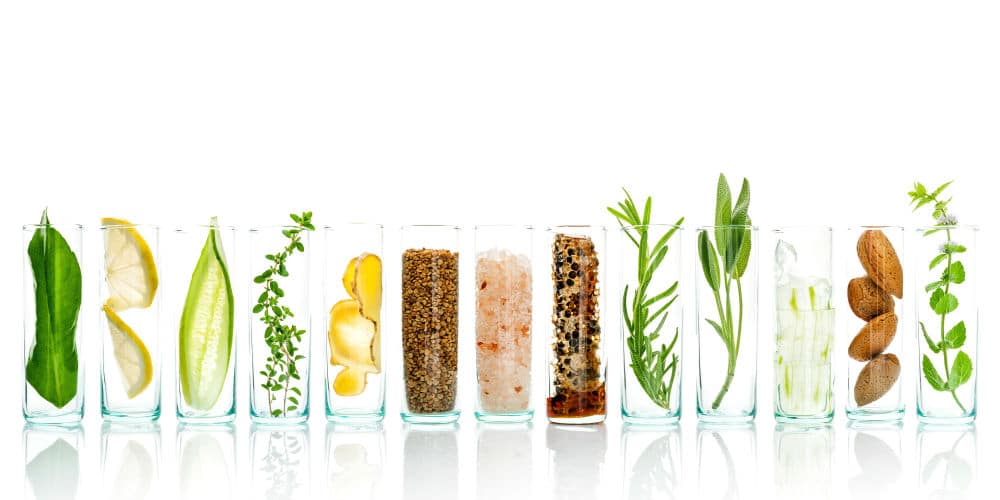What are Sulfates?
Most likely don't put much thought into choosing a shampoo for their hair - some will decide based on the shampoo's fragrance, while others will choose based on what the shampoo promises to do for your locks. As a hairstylist, I recommend shampoos to my clients everyday, and never once does anyone ask, "What are the ingredients used in this shampoo?" Not many people realize the effects that certain ingredients can have on their hair and scalp.
One of the most common ingredients used in most shampoos are sulfates. Sulfates are detergents used to make the shampoo lather. They're are inexpensive to use in shampoos, which explains why more than 90% of shampoos contain them. The most common sulfates used in these shampoos are:
- Sodium Lauryl Sulphate (SLS)
- Sodium Laureth Sulphate (SLES)
- Ammonia Laureth Sulphate (ALS)
- TEA Lauryeth Sulfate (TEA)
- Sodium Myreth Sulphate (SMS)
These sulfates are also contained in most household cleaning products! Would you put household cleaning products on your hair? I don't think so! So why put sulfates in your hair?
Effects of Sulfates on Your Hair and Scalp
Sulfates have the potential to wreak total havoc on your hair. There are many negative effects that sulfates can cause to your hair shaft, hair follicles, and your scalp. Some of these include:
- Dry hair and scalp. Sulfates dissolve all of the natural oils on your scalp, thus leaving your hair and scalp dryer than normal.
- Scalp irritations. Sulfates have the potential to worsen dandruff and eczema. In turn they also leave your scalp feeling tight and itchy.
- Fading hair color. If you color your hair, the aggressive cleansing that sulfates gives you will strip your hair of that color, leaving you with dull, faded locks.
- Hair loss.Sulfates corrode and damage your hair follicles, which leads to hair loss. This is especially true if you don't properly rinse shampoo out of your hair.
You should especially avoid sulfates if you color your hair, the aggressive cleansing that sulfates gives you will strip your hair of that color.
Switching to a Sulfate-Free Shampoo
When switching from your regular shampoo to a sulfate-free shampoo, there may be a few minor things that you will need to get used to. Even if you struggle with these changes, you should always keep in mind that switching to a sulfate-free shampoo is the beginning to having a healthier scalp and healthier hair. The struggle will be worth it.
- No lather.The first thing that you are going to notice about sulfate-free shampoos is that they do not lather. This is a problem for many people because they do not feel that their hair is being properly cleansed. However, you must remember that the only reason that other shampoos lather so much is due to the sulfates that are contained in them. If you are going to avoid sulfates, you must accept the fact that your sulfate-free shampoo is not going to lather like your old shampoo did.
Some tips for getting the most lather out of your sulfate-free shampoo:
- Make sure your hair is thoroughly saturated with water before applying the shampoo to your hair.
- Wash your hair twice! The first shampoo will remove the dirt and oil from your hair, making it easier for your shampoo to lather during the second wash. Washing your hair twice with sulfate-free shampoo is still less damaging than washing your hair once with sulfates.
- Oily Hair. You may also notice that after switching over to your new, sulfate-free shampoo that your hair tends to feel oily a lot faster than it used to. Now that you are not stripping your hair of all of its natural oils, some people may find that their hair feels like its becoming oily quickly. Although nothing can moisturize your hair as well as your hair's natural oils, this can be a problem for some people, especially if they don't like to wash their hair as often as others do.
- One option would be to wear your hair in a bun or a ponytail on the days that your hair doesn't feel as clean as you would like it to.
- However, another option would be to start using dry shampoo. Dry shampoo is sprayed at the roots of your hair, and what it does is absorb any oil that is in your hair, leaving it looking and feeling as if you had just washed it.
All in all, protecting your hair from the potential damage that sulfates can cause is well worth adapting to the changes that come along with using a sulfate-free shampoo!









